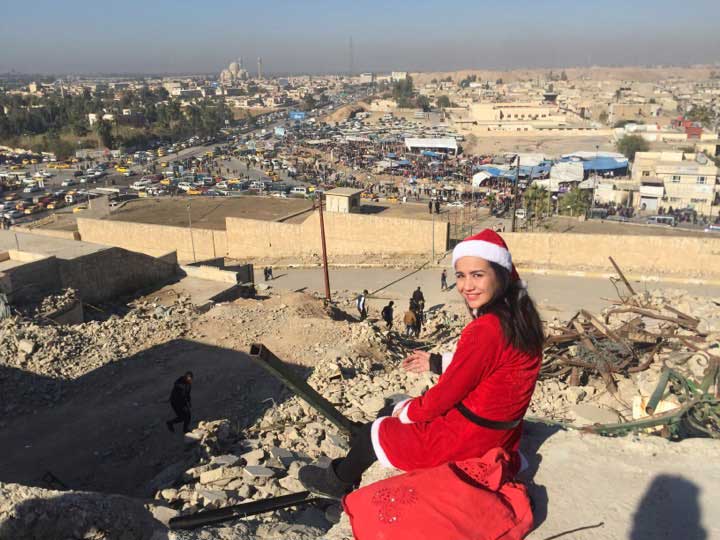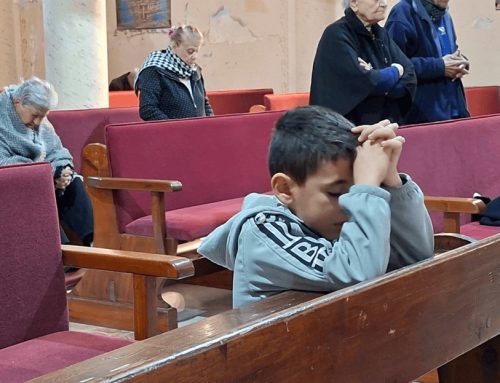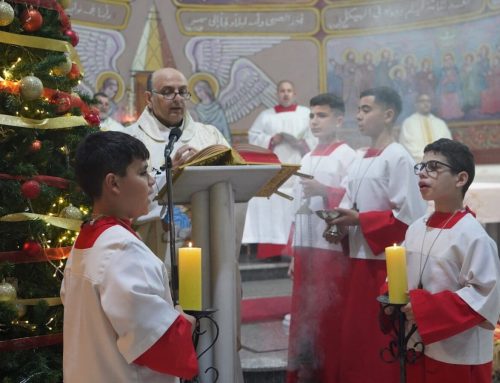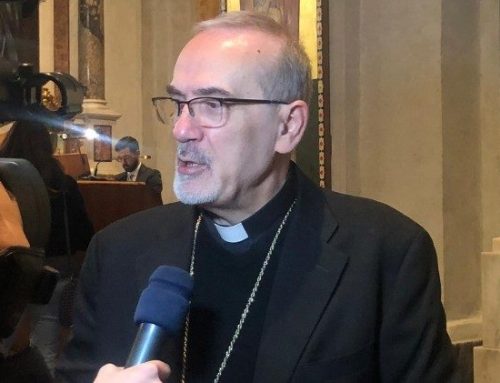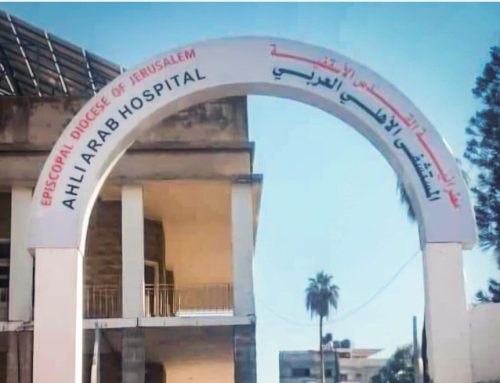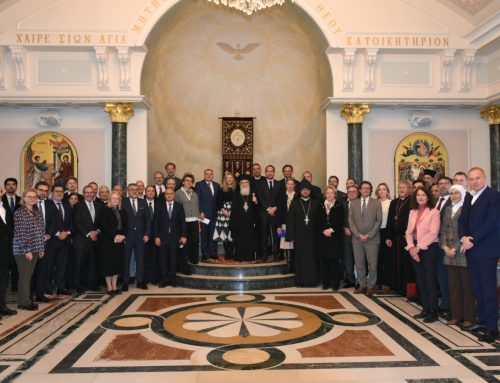[EAST MOSUL, IRAQ] Just one year ago Mosul was the seat of the Islamic State’s so-called caliphate in Iraq.
With 1.8 million people under siege, December was a time when residents used old furniture and cut down trees to keep warm and to cook whatever paltry edibles could be scrounged up –including roadside weeds and stray cats.
Today, while Christians throughout the region enter the holiday generally apprehensive about their place in a turbulent Middle East, the diverse Armenian, Assyrian, Chaldean and Syriac communities in northern Iraq have something special to celebrate.
Christmas trees have appeared in market places and Santa Claus has been sighted on the streets of Mosul.
“It might seem strange to hear that a female Santa Claus has appeared in this city,” said seventeen-year old Ghenwa Ghassan. “But I wanted to give the people here a simple gift — to bring Christmas to a place where it had been banished.”
Dressed as Santa, Ghassan distributed toys and school supplies to Christian and Muslim children in the rubble strewn streets of Old Mosul.
After three years of domination by ISIS, which included killing, abduction, and banishment of Christians from Mosul and the surrounding area, the return of Christmas marks a moment of hope that more people may be able to return along with the holiday.
“The young people spent the night decorating our town with lights just like we used to before ISIS came,” said Bernadette Al-Maslob, a fifty-nine year old archaeologist, in Karamlesh, eighteen miles southeast of Mosul.
Chaldean, Assyrian and Syriac Christians who live in Nineveh Plain towns kindle a “Christmas Flame” in the courtyards of their ancient churches – many of which had been desecrated and burnt by ISIS.
“Celebrating Christmas here is a message, that despite all the threats, persecution, killing and what we faced in Iraq, we have hope that this country will change, “said Rev. Martin Banni, Karamlesh’s Chaldean Catholic priest. Making the point tangible, it is the Chaldean Church that is distributing Christmas trees.
“The last Christmas mass here was in 2013. Now, the cross is lifted again over the Church of St. Paul,” Banni told The Media Line.
Secular and liberal Muslims are also taking comfort in the return of Christmas – they say the tafkiri ideology of ISIS threatened their way of life just as it did for the region’s Christians.
“It was heartwarming and tear-shedding to enter my morning class and see the lighted Christmas tree after three dim years of ISIS rule,” said Ali Al-Baroodi, 29, a lecturer of English at Translation Department at Mosul University’s Faculty of Arts.
More Christians have returned to the more modern areas of east Mosul than to the historic neighborhoods such as Hosh Al-Bai’ah in the west where Ottoman villas, Assyrian and Chaldean Christian churches before the devastation wracked by ISIS.
“Yesterday, a group of Mosul youths have cleaned a church here so Christians can celebrate, attend the mass and ring the bells,” said Saad Ahmed, 32 Muslim resident of East Mosul. “Restaurants and shops are decorated with Christmas trees and Santa Claus images.”
But other churches are still damaged or seized by the government – for example the church in Al-Muhandisin District is now being used as a prison,” Ahmed told The Media Line.
The celebrations in Iraq come after a tense autumn when many Christians were forced to flee their homes in the Nineveh Plain, the country had about 1.5 million Christians at the start of the 2003 US invasion.
Christian aid and advocacy groups believe that number could now be as low as 300,000.
“Emigration of members of minority communities continues as the chances of seeing restored stability are still far away,” said Mervyn Thomas Chief Executive at a London based Christian Solidarity Worldwide.
Community leaders say a full-fledged return of Christians to their neighborhoods in Mosul and its environs remains unlikely for the foreseeable future.
“The Chaldean Church has a political agenda, welcoming back those who return and disparaging those who leave,” said Samer Elias, a Christian writer from Mosul who sought safety in Iraqi Kurdistan after the ISIS onslaught.
“When I come back, I feel broken because my neighbors stood by and watched as our possessions were looted in front of their sight. Too many have bought into the ideology that we are infidels or Dhimmis,” Elais told The Media Line.
Evon Edward, a clinical psychologist in Alqosh- an Assyrian Christian enclave in the Nineveh Plain– says holiday decorations and familiar rituals can’t soothe her anxiety about the year ahead.
“Yes there are lighted trees and people are talking about their preparations for the feast,” said Edward. ”The community is still severely affected by the war, people are celebrating out of habit with dulled senses and cold emotions.”
Source: themedialine.org

